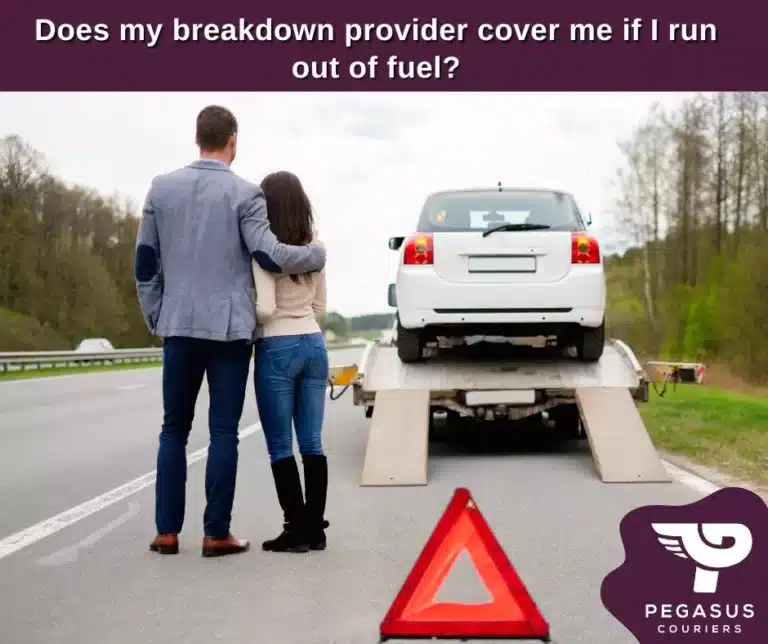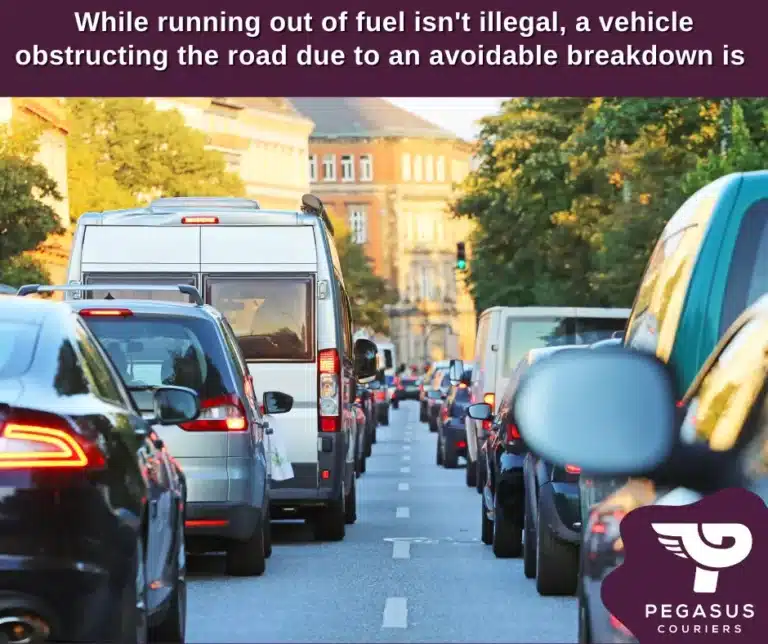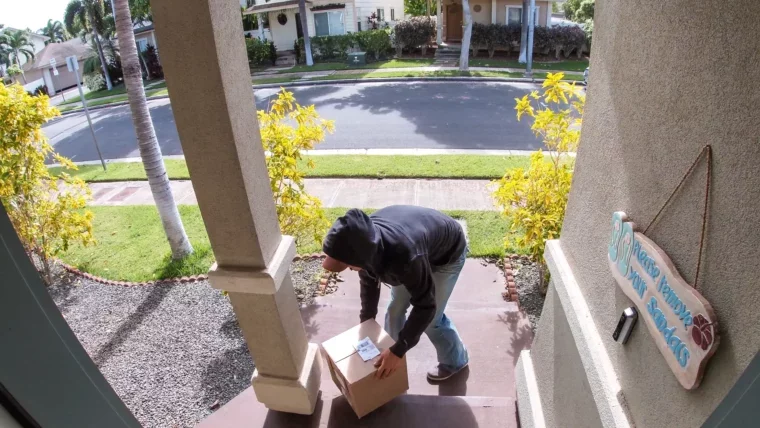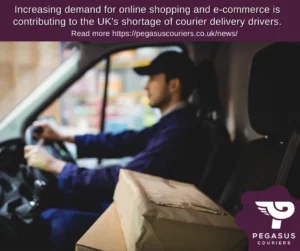Choose a Safe Location for Your Parcels to Be Left Blind Spot Mirror Checks for Safe Driving: Driver Safety With the rise of online shopping and home deliveries, finding a safe spot for your parcels has become more critical than ever. Consider designating areas such as...
Read MoreAvoid Running on Empty: Top Tips forAvoiding Breakdowns

Martin Smith
Pegasus Couriers MD

Running out of fuel is illegal in the UK
Did you know that an avoidable breakdown, such as running out of fuel, can land you in trouble?
Some surveys I will discuss show that more than 800,000 UK motorists run out of fuel annually.
While running out of fuel isn’t illegal, a vehicle that obstructs the road or, even worse, leads to an accident due to an avoidable breakdown is.
Here, I highlight the legalities around letting your vehicle run dry and its importance.
What does the law say
When driving in unfamiliar areas, planning and taking precautions are essential.
The Highway Code (Rule 97) states that the driver should ensure sufficient fuel for the journey before setting off.
The Code also states that planning for sufficient breaks and delays should be factored into the journey.
The fine is a minimum of £100 and three penalty points off your driver’s licence.
If the driver caused an obstruction that resulted in a collision, the penalty could be even more serious.
Nevertheless, there are instances where fuel gauges malfunction or hidden fuel leaks cause drivers to run out of fuel unexpectedly.
The important consideration is whether the fuel run-out was avoidable in the given circumstances.
More common than one thinks
A 2023 survey by Vehicle retailer Motorpoint saw 2,083 motorists interviewed for their take on rising fuel costs and the impact on refuelling.
The survey found 93% of drivers knew it wasn’t good to drive with low fuel levels, 29% believed they could get more miles out of their tank and 16% admitted to trying to use up every mile of fuel before refilling.
Extrapolating the data to match the 33 million licensed cars in the UK meant 5.3 million drivers could be at risk of running out of fuel this year.
According to the breakdown provider Automobile Association (AA), in 2022, they attended more than 10,500 breakdowns where members ran out of fuel or electrical charge. This is an average of more than 28 breakdowns per day.
The Association warned motorists after one of their customers had been fined by police for obstructing traffic after running out of fuel.
A 2014 study by insurer LV= revealed that more than 800 000 drivers run out of fuel a year despite the fuel light coming on.

Damage to your vehicle
Running out of fuel can indeed damage your car, as it can cause the fuel pump to overheat. Additionally, debris and sediment that may be at the bottom of the fuel tank can be sucked into the fuel system when the tank runs dry, leading to clogs and potential damage. It’s important to always keep your car’s fuel tank at a safe level to avoid any potential damage.
Delivery drivers vehicles should always be fuelled
At Pegasus Couriers, we stress the importance of always having in the courier vehicle.
This will keep drivers on the right side of the law and ensure no delivery delays.
Pre-mapped routing software helps drivers plan their routes, find fueling stations, and factor in traffic-related issues.
If a delivery van is running, it means on-time deliveries and happy customers.
At Pegasus, our experienced on-site managers constantly remind drivers to ensure they are fuelled for their routes. During our driver training, we also teach the importance of keeping the vehicle fuelled.
Our fleet and depot management team is on hand to assist any of our drivers should they break down, no matter the reason.
Does my breakdown provider cover me?
It largely depends on your breakdown policy.
About 89% of UK policies analysed by financial information company Defaqto show that customers who run out of fuel are covered.
This equates to one in 10 breakdown policies having no cover.
I recommend calling your breakdown provider to check your policy – you never know when you may need it.
If you want to become a courier driver, apply on our website, and we will call you back.
Become a courier driver today, visit our website for more information and to apply.
Other exciting topics we’ve recently covered include getting the correct Courier Driver insurance and professional courier driver tips.
Self-Employed Courier Insurance
Self-Employed Courier Insurance Cost If you’re thinking about self-employed courier insurance, it’s crucial to remember that this type of insurance is tailor-made for business activities like deliveries. On average, the monthly cost falls between £220 to £261 for comprehensive coverage. This insurance shields your goods while...
Read MoreBest way to send a parcel UK
How to Send a Parcel In The UK: What You Need To Know Sending a parcel involves more than just boxing items and dropping them off at a postal service. It requires careful planning and consideration. As someone who ships packages, you’ll want to ensure your...
Read More
Armed Forces Covenant
UK courier company, Pegasus Couriers, has signed the Armed Forces Covenant as part of a forces-friendly workplace initiative.

Video - What our
Drivers Say
We promote within - hear it from Tam who started as a driver and is now a trainer.

Pegasus Couriers steps up a gear to reach snow-trapped areas
With only a week before Christmas, UK delivery company Pegasus Couriers now has a four-wheel drive truck to reach remote snow-trapped areas.

Top tips for becoming a great delivery driver
Being a courier driver is a great job and requires a mixture of both physical and mental skills. Read what Pegasus Couriers Managing Director, Martin Smith, has to say ...


